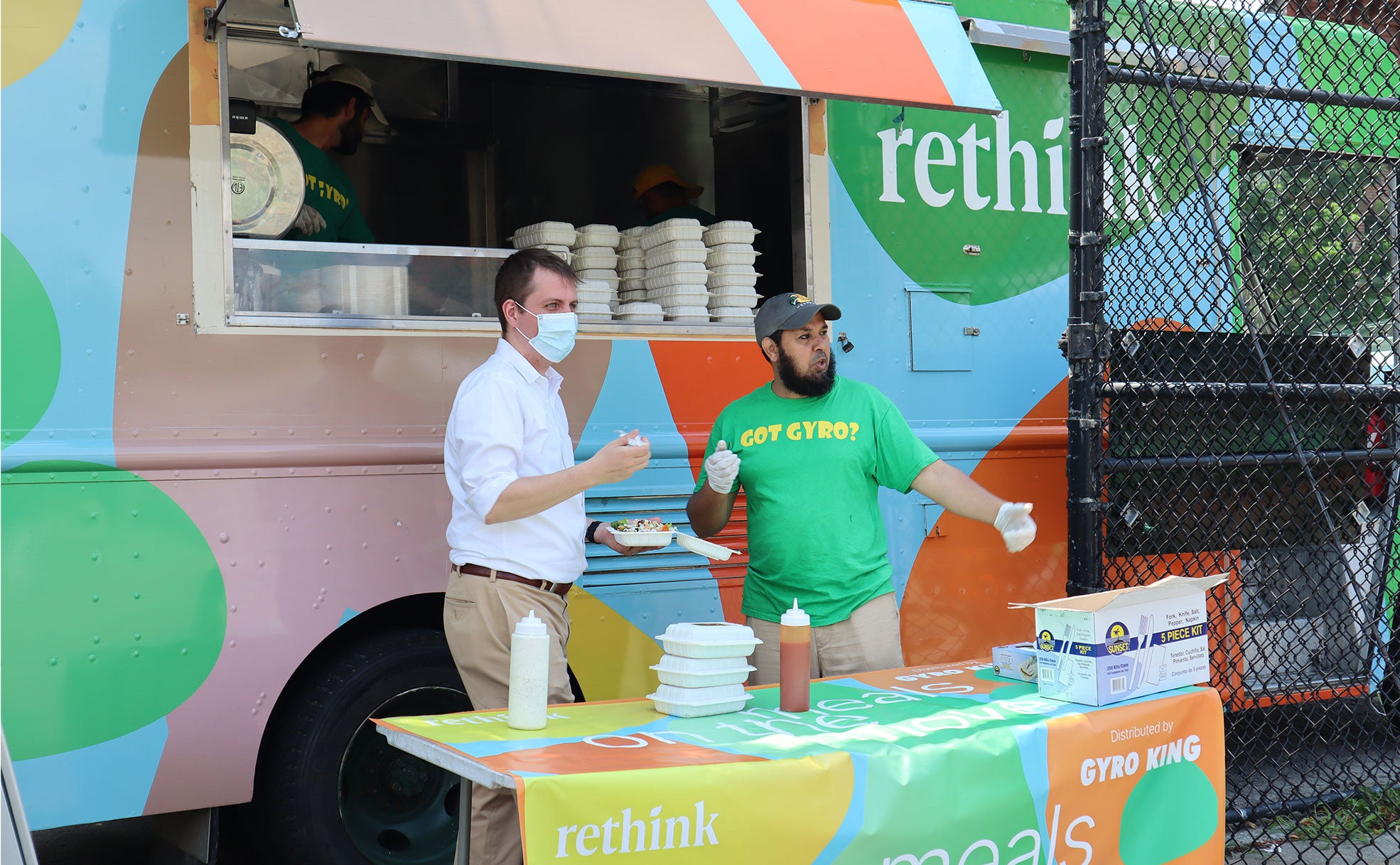
Rethinking Our Food System
There are times when you meet profoundly inspirational people who uplift you and make you want to do great things. Matt Jozwiak is one of those people. We highlighted Jozwiak and his organization, Rethink Food, as one of our cause partners last holiday season. Rethink continues to be one of our cause partners who we are donating 10% of profits from sales to this Spring. We’re taking a moment to profile Jozwiak himself and share how he grew his organization.
A dishwasher turned chef at some of the world’s most renowned restaurants, Jozwiak started Rethink Food while working in the food industry and as a result of seeing so much excess food go to waste. He built Rethink in 2017 by partnering with restaurants and food establishments to utilize their excess food to prepare meals for communities facing food insecurity. Two years after launching, Jozwiak decided to work on Rethink full-time.

Rethink Food shares our common values that no one should go hungry and that we should be mindful of all waste, including food waste. Specifically, Rethink Food wants “to bridge the gap between the billion tons of food that goes unused and the millions of people that face food insecurity.”
Rethink Food started as a kitchen repurposing food from major restaurants to feed the poor. Now the nonprofit works with 60 restaurant partners and 119 community-based organizations in preparing and distributing healthy meals to local communities. In 2020 when the pandemic hit, it made for a particularly challenging year for many, especially for those in need AND small businesses and restaurants, Rethink Food was able to distribute more than 2.4 million meals nationally.

Find out more about Jozwiak and his journey with Rethink Food in our recent conversation.
How were you able to establish such high profile partnerships?
It helped that I had worked for Chef Daniel Humm for several years before I started this. He has been so helpful and even when I left my post as a full time chef, he continued being involved as a Board member of Rethink Food, and so I guess I technically still work for him. And other chefs, like Dominique Crenn, I just DM’ed her on Instagram and she was on board. For the past nearly two years, she has been making 1600 meals per week.
What are some of your challenges?
The hardest thing to do is to find the right community leaders and the right small businesses in the neighborhoods that we serve. Originally we had small restaurants that needed help signing up but they weren’t reading [the details] and did not understand what they were signing up for. What we’ve learned in the last year and what we do now is connect with community leaders from community-based organizations (CBOs) who have been helping those food insecure people far longer than we have so that they can speak to the individual struggling businesses and have them sign up.
Also, when the pandemic hit, we started sending out our kitchen staff to the individual small businesses to cook there with their team. Because if we kept everything centered around our one commissary kitchen and one person got sick, everyone else would [get sick] and then we would have no kitchen or staff. We eventually scaled down the commissary kitchen and found teams within the communities and the small businesses.
We noticed that you started as Rethink NYC and now rebranded to Rethink Food. Are you looking to expand beyond the tri-state area of the US and maybe even globally?
Yes. So we made sure to build something that is scalable. If you want to make a donation to Rethink, you can log on to our website and fill out a form. If you want to become a community partner, you fill out a different form, etc. Once we have a system in place and can generate revenue from the website, it will be much easier to support. Philanthropic work requires consistency. We want to get to 50,000 meals per week self-funded, and build a self generating machine.
Are there ways for individual people to help in addition to monetary donations?
I get this question a lot. But because we are so unique in the way that we do things - real help comes from individuals by donations or just spreading the word. Elevating the company through socials and getting more people interested.

To donate directly to Rethink Food and to learn more about the organization, visit rethinkfood.org.